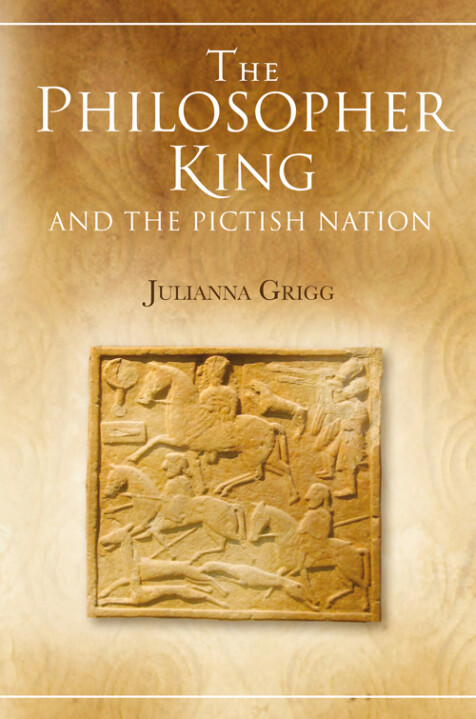The philosopher king and the Pictish nation
Julianna Grigg
‘This is a volume in which many Irish scholars will find value, both as a way to a broader understanding of this period as well as another opportunity to consider the difference and similarities within Early Medieval kingdoms in the British Isles’, Kristen Erskine, Australian Journal of Irish Studies (2016).
‘There is much to be gained from a close reading of this book, and its author is to be congratulated on creative a narrative and a thesis from what is limited and difficult evidence … Grigg’s detailed review of the evidence from the Irish Annals shows a knowledge and understanding of current scholarship and will be particularly useful to the student reader … The book will no doubt become a “must read” for anyone interested in the Picts, and there is much to be gained from it. Grigg’s knowledge of the evidence is clear, and it is well laid out and explored, in a way that allows close reading’, Northern Scotland (2016).
‘This book is part of the wider, fruitful, trend in recent scholarship of reassessing the Picts, bringing them out of the Dark Ages and shedding light on a people who scholars are coming increasingly to recognize had much in common with their neighbours … This book offers new perspectives on the much discussed Easter dating controversy and the expulsion of Iona clerics from Pictland, as well as on a leader whose political strategy derived from his faith’, Catriona Anna Gray, Society for Medieval Archaeology (2016).
‘This study analyzes the archaeological evidence left by the Pictish Nation in the Irish and Anglo-Saxon territories of early medieval Northern Britain … The author reappraises the comparative evidence for political transition among the Picts in conjunction with the material evidence for amalgamation of the various polities of Pictland', Ringgold (October 2015).
‘Comprehensive investigation is essential for valid historical composition, and Grigg amply fills that basic requirement … Readers should be grateful that Grigg undertook this project', E.J. Kealy, Choice (October 2015).
‘I admire the confidence with which she has presented the material available and her deft choice of supporting external data … This is a volume in which many Irish scholars will find value, both as a way to a broader understanding of this period as well as another opportunity to consider the difference and similarities within Early Medieval kingdoms in the British Isles', Kristen Erskine, Australian Journal of Irish Studies (2016)
‘This book can readily be admired as a tour-de-force of interdisciplinary synthesis constructed from an impressive array of research … Not only is it more up to date than previous syntheses in this fast moving field, but it is more ambitious, with a tighter chronological and thematic focus', Dauvit Broun, Cambrian Medieval Celtic Studies (2017).
'An ambitious study, which serves the useful purpose of providing an analysis of the Pictish kingdom, bringing together disparate types of evidence to produce a coherent whole, placing this in a European context', Nicholas Evans, Innes (2018).

